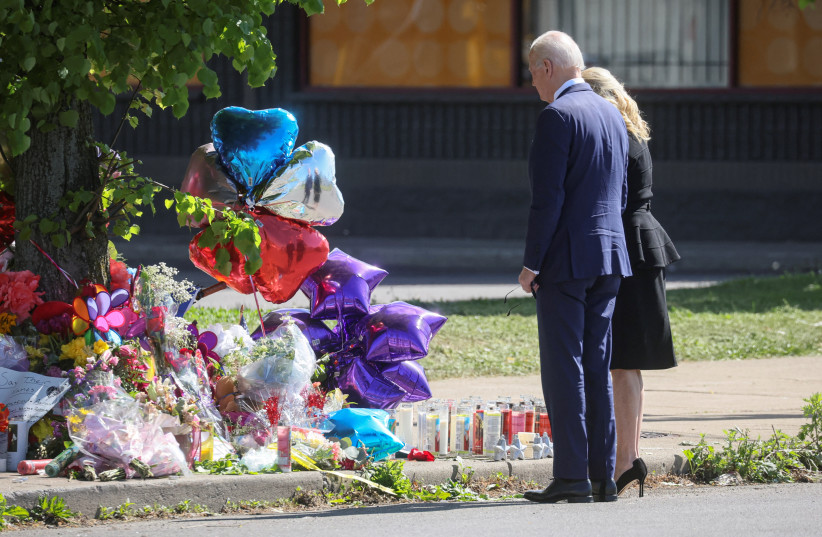When I grew up, there was almost no discussion of mental health. If anything, mental health was consigned to the asylum, almost literally. People who suffered from mental health issues were those who were institutionalized. They were not everyday people.
Either my generation was simply not aware of mental health trauma and could not properly diagnose it, or we lacked the courage to discuss it. Either way, the subject almost never came up.
Now the discussion is everywhere, not only because young men in their twenties are buying AR-15s and blowing away innocent people at school and shopping malls, but because Americans are admitting that they’re not happy. And we also know that the solution will not come only from a bottle of antidepressants.
Nearly a quarter of a millennium ago, Thomas Jefferson declared that the foundation of the American republic was life, liberty, and the pursuit of happiness. The first two were accomplished. Americans have doubled their life expectancy since that time. We also have liberty as arguably the freest people on earth. But happiness has eluded us.

Americans can't pretend something isn't wrong
Americans can no longer pretend that something isn’t wrong. Not when we have more mass shootings than days of the calendar year. Not when the political Right and political Left fulminate against each other with such vitriol and anger.
President Donald Trump promised, after speaking about the tragedy of his elder brother’s death from an overdose, that he would make the issue of mental health central to his administration. Then COVID hit and we all focused on a different pandemic. President Joe Biden has likewise done next to nothing to address the mental health crisis. We can only hope that our elected officials will begin to address mental health for what it is, a national emergency.
The current mental health crisis
For now it falls to us rabbis and religious leaders to ask the simple question of why now. Why are people now unhappier than before? Why are people so riddled with anxiety? And why is it affecting young people so acutely?
Surely, there are many answers to this question. Chemical imbalances that must be addressed pharmaceutically would be near the top of many people’s lists, and I would never deny the importance of medication where competent mental health professionals are advising its use. But that does not address the societal imbalance that is augmenting whatever is imperfect in our heads.
I BELIEVE that the mental health emergency is being fueled by unrealistic societal expectations that are not detached from reality; they are alien to our deepest selves. In other words, our mental health is teetering because fraudulent societal values have created two of us, an inner self and outer self, which are in conflict.
Our inner self wants to be loved; our outer self wants to be admired. While our inner self wants to be valued, our outer self wants to be esteemed. And while our inner self seeks the dignity that comes from virtue, our outer self wants the recognition that comes from fortune and fame.
Is it any surprise that with so much inner tension, we feel anxious all the time?
Read the manifestos of the young men who are shooting up elementary schools. Invariably, what they have in common is a feeling of deep grievance against a society that does not esteem them. They were bullied at school, made to feel like losers. They are angry at a world that finds them invisible.
None of this, of course, justifies the evil they have chosen, and I reject utterly any argument that mental health imbalances utterly negate all moral agency. Yes, there are crazy people out there who may justifiably plead insanity. But, for the most part, rage and anger do not mean you have a right to pull the trigger.
Still, without excusing or justifying their abominable actions, we have to ask, why are so many young men, who haven’t even started life, feeling like failures? Can it be that deathscrolling endlessly about men who are star athletes, billionaires, and ripped gives them unrealistic comparisons of who they are supposed to be? Why are so many young women feeling depression while they are in their teens and early twenties? Could it be that as all our young women read about collagen, Botox and implants, they mentally reject a world that will always make them feel that they are never young enough, thin enough, or attractive enough?
What men and women most seek in life is a feeling of value and worth. For our inner self, that takes the form of a spiritual aspiration, a quest for validation, which can be substantiated only by things that are lasting, like character, relationships and good deeds.
But our outer selves hear never-ending murmurings that none of that matters. What does matter are how many people like us on Facebook, how popular we are with the cool set, and the quality of the vacations we can afford.
In the end, we have all contributed to the mental health crisis. We are guilty of living the lie that is the real “me” of the everyday and the fraudulent “me” that we post on Instagram. We are all guilty of not only keeping up with, but actually pretending that we are, the Joneses. We are all guilty of adding to the fragmentation of the inner and outer self, which has helped spur a global mental health pandemic.
It will take embracing a whole new set of values for our society to begin to address mental health. I wonder whether we have not just the emotional stamina but the strength of character to do it.
The writer, “America’s Rabbi,” whom The Washington Post calls “the most famous rabbi in America,” is the international best-selling author of 36 books, including The Broken American Male and How to Fix Him. Follow him on Instagram and Twitter @RabbiShmuley.
